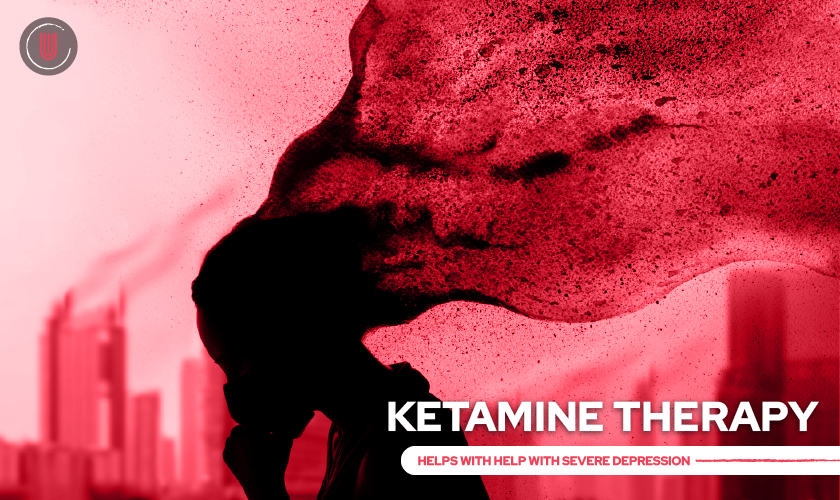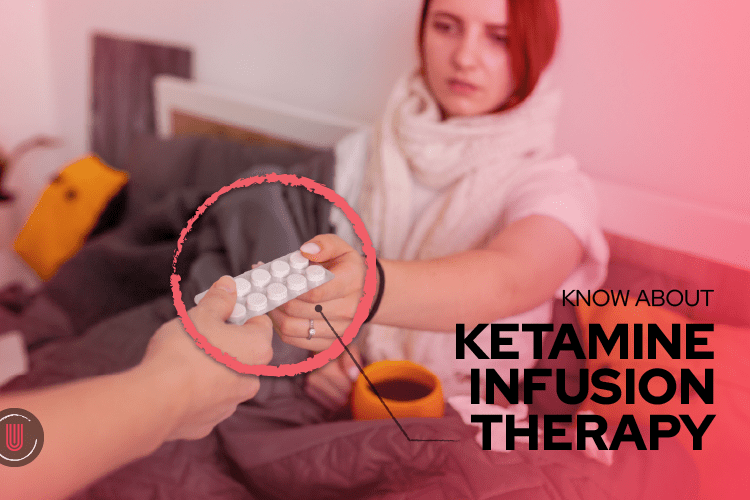
Depression is a common mental health disorder affecting millions of people worldwide. Despite the availability of various treatment options, not everyone responds to traditional medications or psychotherapy. In recent years, ketamine therapy has gained attention as a potential treatment for severe depression. In this blog post, we will discuss what ketamine therapy near me is, how it works, and how it can help with severe depression.
What is Ketamine Therapy?
Ketamine is a dissociative anesthetic used in medical settings for over 50 years. It was originally developed as a surgical anesthetic but is also used in emergency medicine to treat pain and sedate patients. In recent years, ketamine has been explored as a treatment option for depression, particularly in cases where traditional treatments are ineffective.
Ketamine therapy involves the administration of a low-dose intravenous infusion of ketamine. The dose is typically much lower than used for anesthesia. Patients are monitored closely throughout the infusion and for some time afterward.
How Does Ketamine Therapy Work?
Ketamine affects multiple receptors and pathways in both the brain and the body, making its exact mechanism of action complex and not yet fully understood. One of the key pathways thought to be at play is the glutamate pathway. Ketamine is an NMDA receptor antagonist which binds to the NMDA receptor protein on cell membranes and blocks glutamate from binding there. This interaction increases communication between neurons in certain brain areas, particularly in the prefrontal cortex, which regulates mood.
Other NMDA receptor antagonists have not been found to have such strong antidepressant effects or any antidepressant effects. This suggests that additional pathways, such as the mTOR pathway and the AMPA receptor, may be at play, which is also targeted by ketamine. The opioid receptors in the brain are also affected by ketamine. However, it is still not fully understood how much each pathway interacts with the others or if one pathway is more important than the others in producing antidepressant effects.
It is known that ketamine increases neural connectivity and neuroplasticity, but the exact mechanism behind this effect is not yet fully understood. It is thought that the increased neural activity likely helps the brain and other affected neurons to function more normally and also creates neuroplasticity, allowing a patient’s neural activity to overcome unhealthy recursive patterns.
Ketamine is also known to produce anti-inflammatory effects, which may contribute to its antidepressant effects. Depression has been linked to inflammation in the brain, and ketamine’s ability to reduce inflammation may help to alleviate depressive symptoms.
How Can Ketamine Therapy Help with Severe Depression?
Ketamine therapy has shown promising results in treating severe depression, including treatment-resistant depression. Treatment-resistant depression is a form of depression that does not respond to traditional medications or psychotherapy.
A study published in the Journal of Psychiatric Research suggests that ketamine therapy may positively impact reducing suicidal thoughts, independent of its antidepressant effects. The study found that depression accounted for a limited variance in the change in suicidal thoughts, indicating that ketamine may be a more effective treatment option for suicidal ideation than traditional antidepressants.
This study shows that ketamine therapy has pro-cognitive effects and can improve cognitive function in patients with treatment-resistant depression and suicidality, independent of its mood-lifting effects. Therefore, this study further supports the potential therapeutic benefits of ketamine in treating depression and other mental health conditions.
This study suggests ketamine is a promising therapeutic option for treating treatment-resistant depression (TRD) in real-world clinical settings. The study conducted a systematic review and meta-analysis of studies evaluating the effectiveness of ketamine in TRD patients. The study’s results suggest that ketamine has a substantial antidepressant effect, with a mean response rate of 45% and a remission rate of 30%. The study found that even the most treatment-resistant patients may benefit from ketamine and that mid-to-long-term treatment is effective in many patients. The study suggests ketamine may be an effective treatment option for TRD patients in real-world settings.
Is Ketamine Therapy Safe?
Ketamine therapy is generally safe when administered by a qualified medical professional in a medical setting. The most common side effects of ketamine therapy include dissociation, a feeling of detachment from reality, and transient increases in blood pressure and heart rate. These side effects are usually mild and resolve within a few hours after the infusion.
Ketamine therapy may not be suitable for everyone, particularly those with a history of substance abuse, psychosis, or certain medical conditions. It is important to discuss your medical history with your healthcare provider before undergoing ketamine therapy.
Conclusion
Ketamine therapy is a promising treatment option for severe depression, particularly when traditional treatments are ineffective. Ketamine therapy has shown rapid and significant improvements in symptoms of depression and may also be effective in reducing suicidal thoughts.
However, ketamine therapy may not work for everyone. It is important to discuss the risks and benefits of ketamine therapy with your healthcare provider and to continue other treatments for depression as recommended.
Urbane Medical offers ketamine infusion therapy as a comprehensive mental health treatment option. Our team works with patients to develop personalized treatment plans that address each patient’s needs. If you are interested in ketamine therapy or have questions about our services, please contact us to schedule a consultation.
With proper medical oversight, ketamine therapy can be a safe and effective treatment for needy people. If you or a loved one is struggling with severe depression, consider discussing ketamine therapy as a potential treatment option with your healthcare provider. And if you’re interested in exploring this option, feel free to learn more about our services and how we can help.


